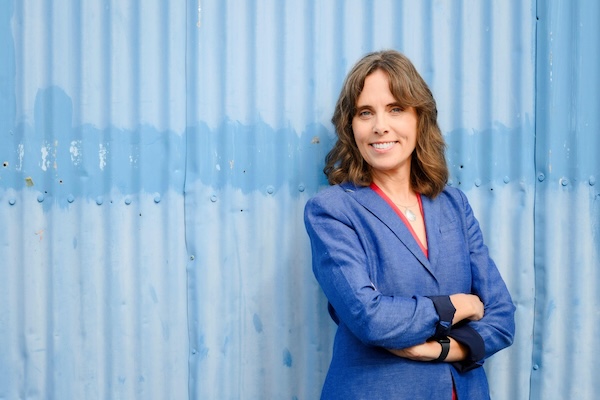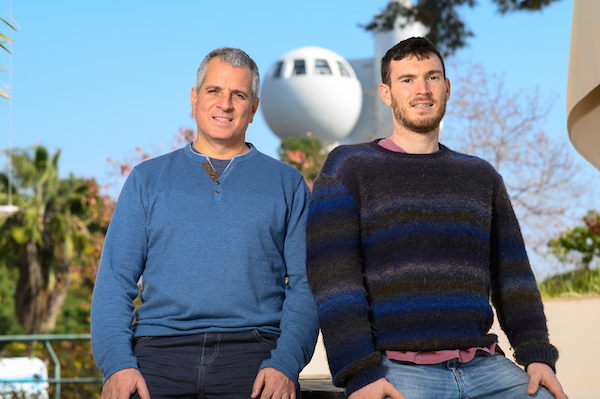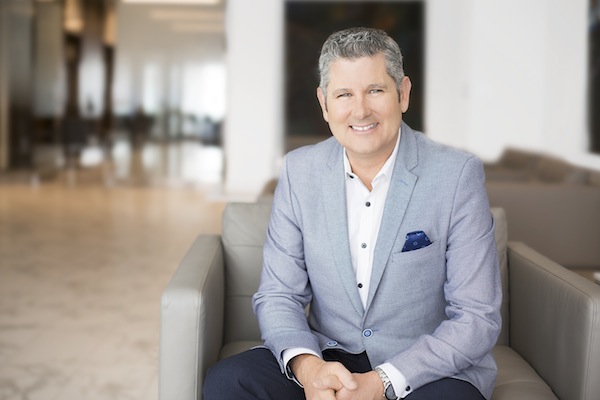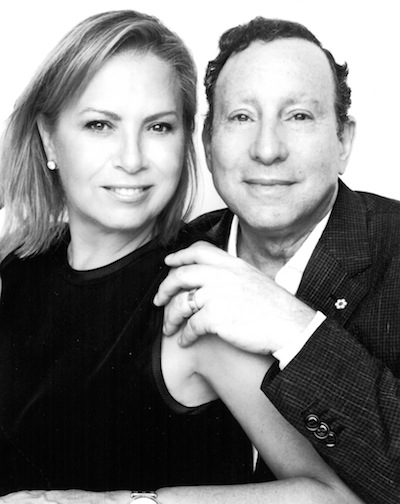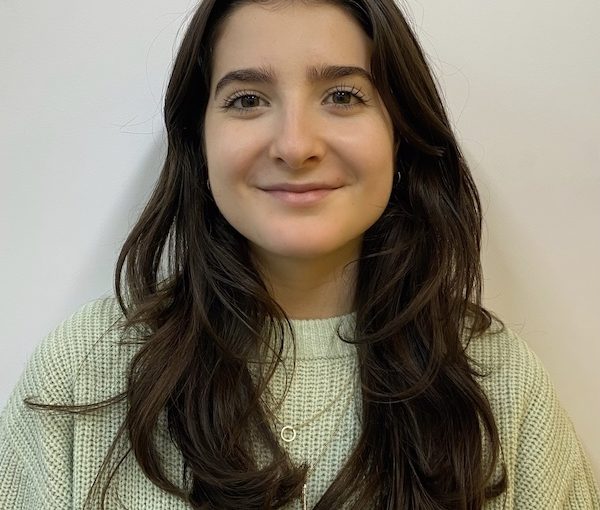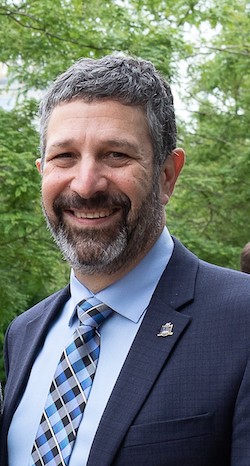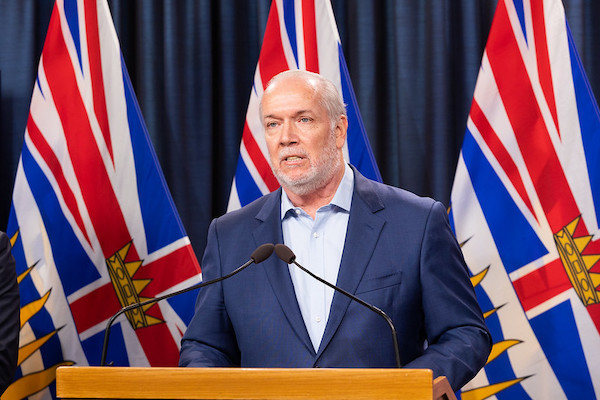Businesses in Valemount, BC, stepped up to help thousands of Jasper evacuees, but now find themselves struggling. (photo from Spencer Hall)
A member of the miniscule Jewish community in Valemount, a town in east-central British Columbia, reflected on the challenges of the past year and looked ahead with hope to 2025.
Spencer Hall is publisher and editor of the Rocky Mountain Goat newspaper, which serves Valemount, McBride and the Robson and North Thompson Valleys. When wildfires rampaged across the Alberta resort town of Jasper, about 90 minutes up the highway from Valemount, Hall’s newspaper was on the frontlines reporting as thousands of evacuees – residents and tourists – flowed in from the east.
On July 22, two wildfires exploded in the area around Jasper and fire officials and national park administrators evacuated the community in advance of the expanding inferno. The fire would tragically sweep away one-third of Jasper’s structures and kill one firefighter, 24-year-old Morgan Kitchen of Calgary.
A welcome centre was created in Valemount, the closest significant town to Jasper’s west. With just 1,000 full-time residents, Valemount was overwhelmed by the thousands of Jasper evacuees, but Valemountians came together to do all they could for their next-province neighbours.
“I was getting ready to get the paper out to press on a Monday night,” Hall recalled. “I just finished the layout for the evening and was about to go to bed, and then we hear that all the residents and the tourists that were in Jasper – and it was the summer, so there were many of them – were coming to Valemount. I threw on my clothes and went to the community centre. The mayor was standing in the rain directing traffic for hours in the parking lot of the community hall.”
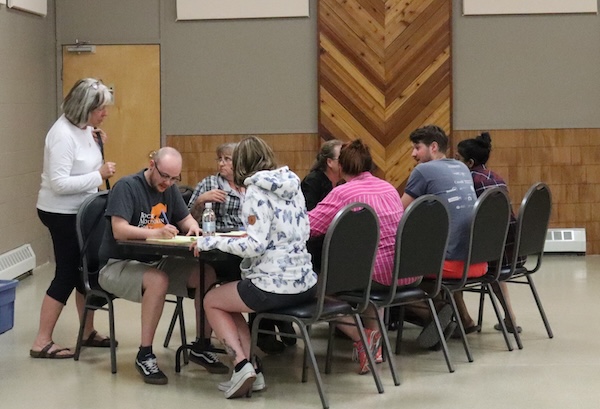
Townsfolk quickly responded to the newcomers, who were suffering physically and emotionally.
“To see all of us come together, that was nice, but obviously it was very devastating, as the fire raged on and decimated 30% of the town [of Jasper],” said Hall. “You’d have people crying on the side of the street, understandably, because they just lost their house or their pets. It was a very dramatic week.”
The economy of Valemount and the surrounding areas – the tourist draw of Mount Robson is just up the road – depends greatly on tourism. Valemount attracts snowmobilers in winter and counts on drivers heading to and from Jasper for restaurant and hotel business year-round. The devastation in Jasper has had repercussions on both sides of the BC-Alberta boundary.
“Even though this fire wasn’t in our province, it did impact British Columbians, especially in Valemount,” Hall said. “We are seeing a lot less tourism.… There are business owners that are really struggling. Our restaurants have been impacted. We have one grocery store and they are feeling the impact as well.”
And the newspaper isn’t immune.
“The Goat has definitely been impacted because as revenues go down, the first thing people slash is their ad budget,” said Hall. “So we’ve been seeing less ads months later.”
The tourism downturn came at a particularly bad moment, as last winter saw lower-than-average snowfall, reducing the winter vacation crowds. Local businesses had hoped for a good summer to make up for the shortfall, but the July fires gutted that hope.
It is early yet in the winter sports season, but snowfall so far is promising.
“We’ve had a few people come out for snowmobiling,” Hall said. “I know that we have more snow than we had last year, so that’s good.”
Consultants are helping local businesses and the tourism authority is working to strengthen the sector. Hall said interprovincial jurisdictional issues, as well as a provincial election in British Columbia, may have slowed economic responses for the region, but the federal government seems to be particularly slow in responding.
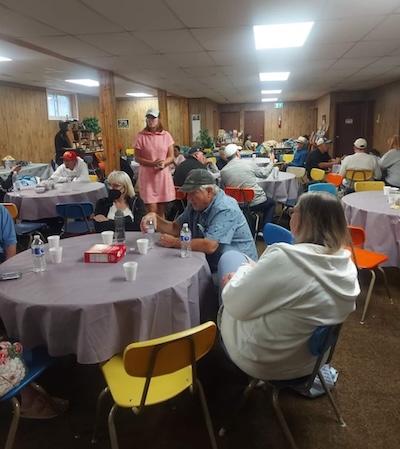
The dramatic year was a trial by fire for the newspaper’s new owner, who took over the media outlet only in January. (See jewishindependent.ca/new-face-in-bc-media.)
“It was a lot,” said Hall. “I come from a radio background, where you’re able to communicate very, very quickly.”
The Goat, which is a weekly newspaper, effectively became a daily news platform during the fires. In addition to a new website, the Goat is developing a breaking news feature to respond immediately to any future events like last summer’s.
Another Jewish community member, Vancouver doctor Larry Barzelai, worries that the fires Jasper saw will be an increasingly common occurrence.
Barzelai, who is BC chair of the Canadian Association of Physicians for the Environment (CAPE), said that almost every year brings a climate-related catastrophe.
“This year with Jasper, last year was West Kelowna, two years before that was Lytton that burned to the ground,” Barzelai said. “There is a pattern here. It’s not getting any better and I don’t think it will.”
CAPE has been trying to shift the dialogue, said Barzelai, but things won’t change until people change their patterns and lifestyles, massively reducing the use of fossil fuels.
“Until we get a handle on that, things are not going to improve,” said Barzelai. “I’d like to have something more optimistic to say, but it’s tough finding optimism when you see what’s going on in the world.”
A United Nations study issued recently reported that three-quarters of the earth’s surface is permanently drier than it has ever been.
“It’s just another piece of evidence that we are going in the wrong direction. The world is heating up and we’re letting it get hotter and hotter,” Barzelai said.



